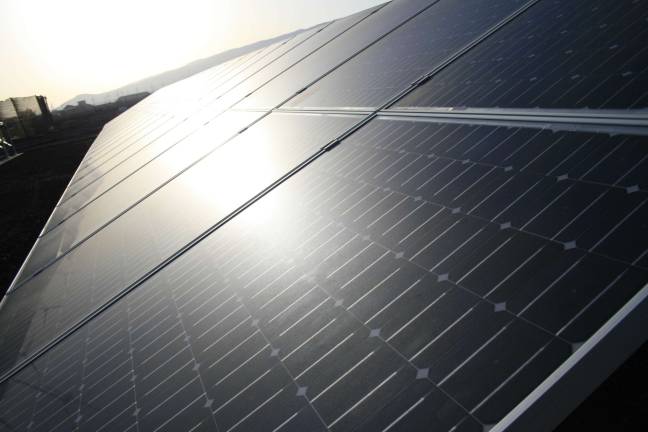Vernon school district OKs solar panels

VERNON — The Vernon Township Board of Educationg awarded a contract to a California-based development company to put solar fields at Vernon Township High School, Rolling Hills Primary Shool and Lounsberry Hollow Middle School.
The project, given to Solar City, started several months ago when the district hired DeCotiis, Fitzpatrick and Cole and Gabel Associates, working as a team, to solicit proposals for solar fields at the high school and Lounsberry Hollow.
This agreement says the development company puts a solar field on a site provided by the district, and then sells the power it produces to the district at a set reduced rate. The developer will retain ownership of the equipment and makes money on the tax credits given to owners of solar systems. The agreement has a 15-year lifespan, after which the district has the option to buy out the system or have it removed.
Five quality proposals were received, according Ryan Scerbo of DeCotiis, Fitzpatrick and Cole, who presented the proposals and the firm's recommendations to the board.
Solar City was the only contractor that added in Rolling Hills Primary School, and their pricing was right, earning them the consultant's recommendation. The project will supply 90 percent of the electricity used by Rolling Hills and Lounsberry Hollow and 26 percent of the electricity for the high school. The much lower percentage of power for the high school is based on two factors, according to Scerbo. The first is that the solar field will go on the roof of the high school, which limits its size, and the second is the high school is all electric, so the demand is very high.
At the high school, Solar City estimates the district will save $675,000 over the 15-year contract, while at Rolling Hills, $157,000 will be saved and Lounsberry Hollow will save $555,000.
This will meet all of the original goals of the district in setting up the program-stable electrical costs, a smaller carbon footprint and educational programs that can be used throughout the district to teach students about the value of environmentally sound energy.
During the discussion, board member John McGowan asked if upgrades would be done to the fields as solar technology progressed.
Scerbo said that it was at the discretion of the developer.
“Technology is always growing, but making it commercially available and cost effective is another story,” he said.